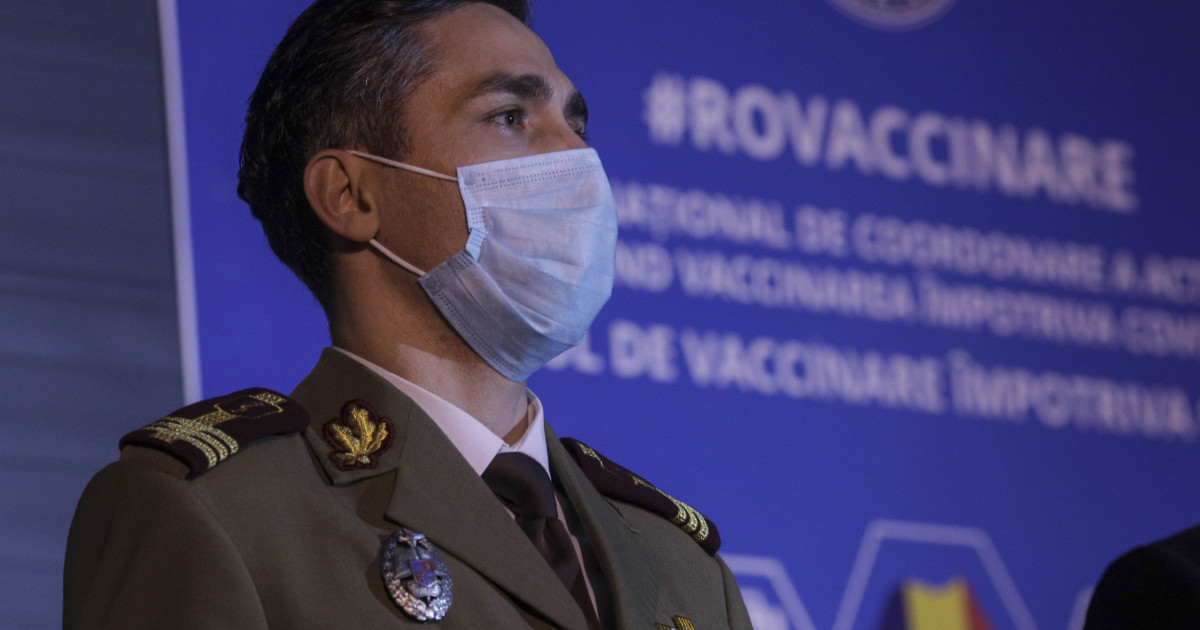
[ad_1]
Romanian authorities intend to vaccinate 13 million Romanians in six months to defeat the coronavirus. Military medic Valeriu Gheorghiță, coordinator of the national anti-COVID vaccination campaign, answered on Digi24 on Saturday night people’s most frequent questions and concerns about the vaccine, in which many hope it will end the pandemic.
The Pfizer-BioNTech vaccine is due to receive the approval response from the European Medicines Agency on December 29, and the application deadline for Moderna has been set for January 12. But approval for these vaccines could come before these deadlines, if experts have additional data. In any case, from the receipt of the approval, it will take another week, maximum two, until the delivery of the vaccine in the country and the vaccination will begin immediately, said Dr. Valeriu Gheorghiță.
The goal of vaccinating 70 percent of the population seems quite ambitious given that there is a lot of reluctance. Does that mean that those who get vaccinated do so in vain? No, says Dr. Valeriu Gheorghiță, when the population is at risk of being vaccinated, the effects of the virus will be substantially reduced, the pressure on the medical system will decrease and deaths will also decrease.
One of the most frequently asked questions is about the duration of immunization after vaccination. There is no clear answer yet, more data is needed, but it may be a long-term immunity, in any case more than the immunity provided by going through the disease itself. And in this context, some wonder if we will have to get the COVID vaccine regularly, as in the case of the flu vaccine. Dr Valeriu Gheorghiță says it is unlikely, because it was found that the mutation rate for SARS-CoV-2 is not as high as for the influenza virus. But for now, even in this case, there is no one hundred percent sure answer.
Can those who have already taken COVID-19 be vaccinated? Yes, says Valeriu Gheorghiță, in his case, the vaccine will be an incentive that will further strengthen his immunity.
It will be possible to vaccinate absolutely everyone, even those without health insurance, because the vaccine is free. For registration, people will have an online platform, but they will also be able to do so by phone or with the help of a family doctor.
Read also: Why don’t family doctors make lists of those who want to get vaccinated against COVID? How the vaccine will reach the general population
It is not yet clear at what age the population will be vaccinated. The European Medicines Agency will certainly make some recommendations and it may be the population over 18 years of age. In the UK, it started at age 16. In any case, the data is now being evaluated by experts.
If several vaccines appear on the market simultaneously, from several companies, will we be able to choose our vaccine? The European Union has contracts with six companies, depending on the approvals received, deliveries will begin as scheduled. We will not be able to keep the vaccines in stock, says Dr. Valeriu Gheorghiță, but the administration of vaccines, if there will be several on the market simultaneously, will be done in accordance with the recommendations of the European Commission.
Regarding contraindications, the doctor says that these are possible allergic reactions and people who are treated with anticoagulants, but even in the case of the latter solutions can be found. For example, anticoagulant treatment for the vaccination period can be replaced, for example, in agreement with the doctor, and then resumed. For people with diseases of the immune system, such as people with HIV / AIDS, the vaccine in their case is not contraindicated, but it will generate a weak immune response.
Follow the detailed answers of Dr. Valeriu Gheorghită in the video below:
Editor: Luana Pavaluca